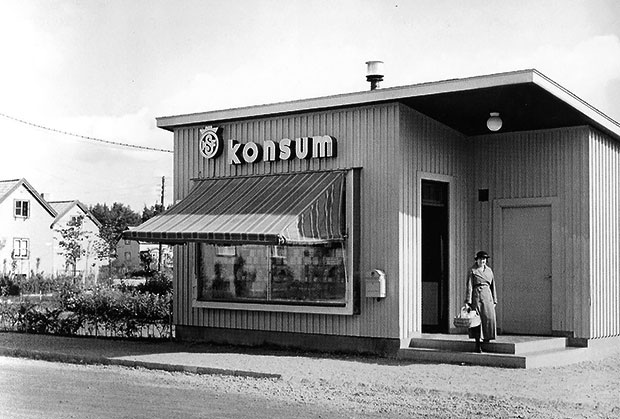A brand for everyone. KF's graphic design, advertising and design.
In the 1970s The Swedish Cooperative Union (KF) launched large, visionary projects, based on KF's ideological legacy. This research project studies KF's business profile during the late 1960s and 1970s.

Picture: Konsum grocery store in Svedmyra 1934
In Sweden, more than in other countries, there has long been a restrictive attitude towards luxury and consumption. But in the 1980s thrift, as an ideal, lost ground. This project aims to shed light on how the traditional ideal was gradually forsaken. In focus is The Swedish Cooperative Union (KF) which had traditionally been emblematic of thrift with a strong standing in the Swedish welfare state.
The study will analyse how, from the late 1960s to the end of the 1970s, KF sought to maintain the old ideal. Through campaigns focusing on basic manufactures in the fields of clothing, furniture and food, a return to the classical ideology of thrift was sought. Aesthetics were central and this project seeks to explain how the campaigns were formulated and visualized.
These ideologically profiled initiatives proved to be KF's death throes. The notion of thrift was totally contrary to the consumer culture of the 1980s and the new market conditions. By tracing the end of KF's heyday, a subject that has not hitherto been the subject of research, it will also be possible to shed light on more general social developments.
The project builds on three case studies. The first one discusses the cooperative movement's uniform corporate profile from 1967. The second analyses KF's basic manufactures, while the third study focuses on KF's "unbranded" convenience goods that were launched towards the end of the decade.
The reserach project is funded by Ridderstads stiftelse.
Project manager: Sara Kristoffersson.
Project period: 2016-2019